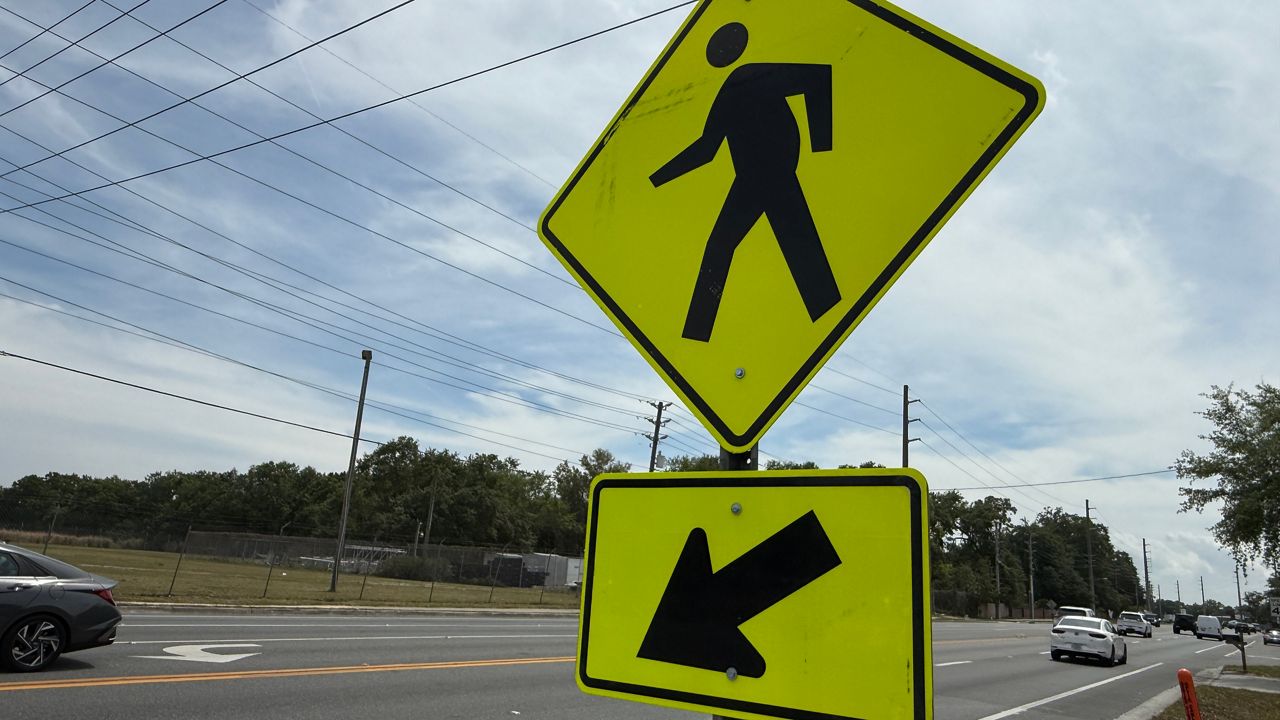KISSIMMEE, Fla. — New numbers on Florida’s economy show inflation continues to rise in the Sunshine State.
The consumer price index rose 3.5% in March compared to last year, according to the U.S. Bureau of Labor Statistics.
On Friday, hundreds of people waited hours to get food in front of the Central Motel in Kissimmee.
Floridians, including those in Osceola County, are experiencing firsthand the impacts of rising food prices.
Data from Moody’s Analytics shows Florida’s year-over-year inflation sits at 3.99%, higher than the national average.
“I actually live up the road from here,” said Amanda Rodriguez, who was moving through long lines at the Central Motel along U.S. 192 in Kissimmee friday as she waited for free groceries.
“When I see the food banks, I stop and grab it and disperse it among my mom and uncle,” she said.
Like many Americans, Rodriguez is experiencing dramatic price increases for daily necessities.
“I’m lactose intolerant, so I’m only able to drink a milk called lactate," she said. "I used to pay $2.50 for it. It’s literally almost $7."
She says the rising costs keep her up at night. She currently doesn’t work, but is looking for a job.
“Everything is going up, rent, food, gas, water, light bills,” she said.
Erika Spence at Second Harvest Food Bank of Central Florida says Rodriguez’s story is a familiar one.
On Friday, Second Harvest, along with Clarita’s House Outreach Ministry, spent the day in Kissimmee serving families living along U.S. 192 with volunteers giving out groceries to about 500 families.
“Families who are at a loss for what to do because of the cost of inflation and rent,” said Spence.
This week, the U.S. Bureau of Labor Statistics said the index that measures goods and services prices across the economy rose 3.5% in March from a year earlier.
“We were shocked to hear that inflation continues to go up because we know its impacting a lot of families,” said Spence. “Because someone may have been OK to a point, but there’s always that breaking point and I think that’s what we’re feeling with a lot of people right now is that enough is enough and they need relief and so their reaching out for help.”
Officials at organizations like Second Harvest say they are concerned that inflation continues to be a problem.
Spence said she keeps hearing stories of high prices at grocery stores crippling budgets and many families saying their wages are not keeping up with inflation.
“It concerns us at Second Harvest, that this continues to be a problem as we approach summer," she said. "And we know that kids will be out of school, will lose access to the cafeteria meals that they rely on for the other 10 months of the year."









